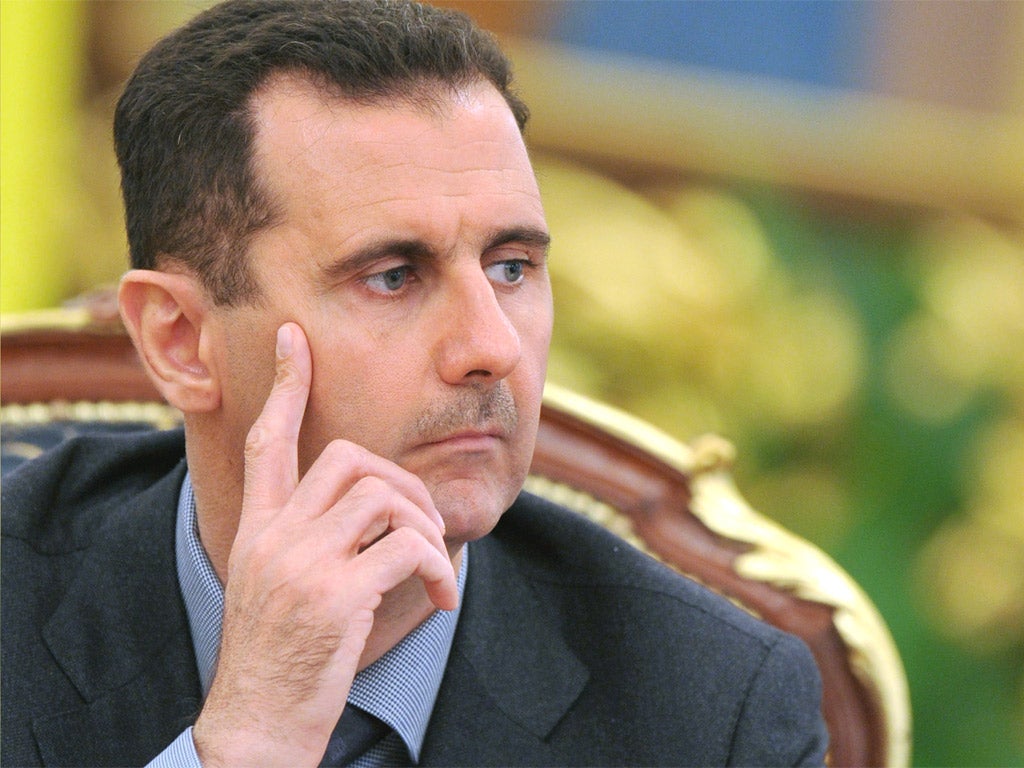Gulf countries pull support for Arab League's Syria mission
Nations cite as their reason the daily killing of protesters by President Assad's regime

Your support helps us to tell the story
From reproductive rights to climate change to Big Tech, The Independent is on the ground when the story is developing. Whether it's investigating the financials of Elon Musk's pro-Trump PAC or producing our latest documentary, 'The A Word', which shines a light on the American women fighting for reproductive rights, we know how important it is to parse out the facts from the messaging.
At such a critical moment in US history, we need reporters on the ground. Your donation allows us to keep sending journalists to speak to both sides of the story.
The Independent is trusted by Americans across the entire political spectrum. And unlike many other quality news outlets, we choose not to lock Americans out of our reporting and analysis with paywalls. We believe quality journalism should be available to everyone, paid for by those who can afford it.
Your support makes all the difference.The Arab League was in disarray last night after a coalition of Gulf nations withdrew their support for its beleaguered Syria observer mission and endorsed a United Nations solution.
Members of the Gulf Co-operation Council (GCC), a regional body that includes Saudi Arabia, Kuwait and Qatar, announced they could no longer support the mission due to the daily killing of protesters by President Bashar al-Assad's regime.
"The decision was made after careful and thorough monitoring of events in Syria and the conviction by the GCC that the bloodshed and the killing of innocent people there is continuing," a statement from the organisation said.
Last night, Syria agreed to extend the observer mission until February 23, according to state news agency SANA.
With the Arab world now divided on how to proceed – and with confusion reigning in the West – there are serious questions about how to deal with a potentially catastrophic unravelling of order inside Syria.
"There is considerable disarray within the Arab community about how to deal with Syria," Joshua Landis, creator of the Syria Comment news website, said. "Increasingly, analysts are coming to the conclusion that this is going to be a long, drawn-out battle."
The GCC announcement, which drew a scathing response from Mr Assad's regime, came after the Arab League delivered a peace plan on Sunday from its widely criticised monitoring mission.
The plan called for the four-decade-old Baathist regime to be replaced by a national-unity government within two months, followed by parliamentary and presidential elections to be held under the supervision of Arab and international monitors.
But Mr Assad's regime, which human rights groups say continued killing hundreds of civilians during the Arab League mission, swept aside the proposal and called it a "flagrant interference" in the country's internal affairs.
The Foreign Minister Walid al-Moallem said yesterday that "half the universe" was conspiring against Syria, a long-time stalwart of Arab nationalism and founding member of the Arab League. "It is the duty of the Syrian government to take what it sees as necessary measures to deal with those armed groups that spread chaos," he said.
The decision by the GCC to sever ties with the monitoring mission came after observers received substantial flak from rights groups and members of Syria's opposition over allegedly "providing cover" for Mr Assad. There was also criticism about the mission's lack of transparency and the tiny number of monitors assigned to cover the crisis.
But the move also reflects the frantic game of one-upmanship being played out across the Middle East. Gas-rich Qatar, so pivotal in the toppling of Muammar Gaddafi, is keen to maintain its position at the helm of regional diplomacy and continue its political ascendancy.
Join our commenting forum
Join thought-provoking conversations, follow other Independent readers and see their replies
Comments